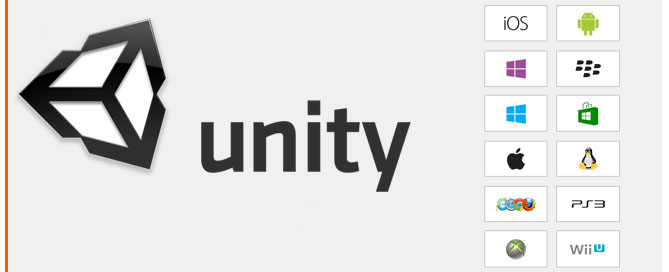Unity 3D Game Engine – JavaScript – Overriding
Overriding è una pratica che consente di sovrascrivere un metodo della classe padre con un metodo della classe figlia.
Fruit Class
#pragma strict
public class Fruit
{
public function Fruit ()
{
Debug.Log("1st Fruit Constructor Called");
}
//Overriding members happens automatically in
//Javascript and doesn't require additional keywords
public function Chop ()
{
Debug.Log("The fruit has been chopped.");
}
public function SayHello ()
{
Debug.Log("Hello, I am a fruit.");
}
}
Apple Class
#pragma strict
public class Apple extends Fruit
{
public function Apple ()
{
Debug.Log("1st Apple Constructor Called");
}
//Overriding members happens automatically in
//Javascript and doesn't require additional keywords
public function Chop ()
{
super.Chop();
Debug.Log("The apple has been chopped.");
}
public function SayHello ()
{
super.SayHello();
Debug.Log("Hello, I am an apple.");
}
}
FruitSalad Class
#pragma strict
function Start ()
{
var myApple = new Apple();
//Notice that the Apple version of the methods
//override the fruit versions. Also notice that
//since the Apple versions call the Fruit version with
//the "base" keyword, both are called.
myApple.SayHello();
myApple.Chop();
//Overriding is also useful in a polymorphic situation.
//Since the methods of the Fruit class are "virtual" and
//the methods of the Apple class are "override", when we
//upcast an Apple into a Fruit, the Apple version of the
//Methods are used.
var myFruit = new Apple();
myFruit.SayHello();
myFruit.Chop();
}
Come funziona?
1. Fruit Class
– una classe pubblica Fruit con le funzioni Fruit() – Chop() – SayHello()
2. Apple Class
– classe figlia di Fruit con le funzioni
– Apple()
– Chop()-> super.Chop()
– SayHello()-> super.SayHello()
3. FruitSalad Class
– la funzione Start() si avvia la caricamento dello script
– richiama Apple().SayHello() e Apple().Chop() -> che vanno in ovverride su Fruit().SayHello() e Fruit().Chop()



